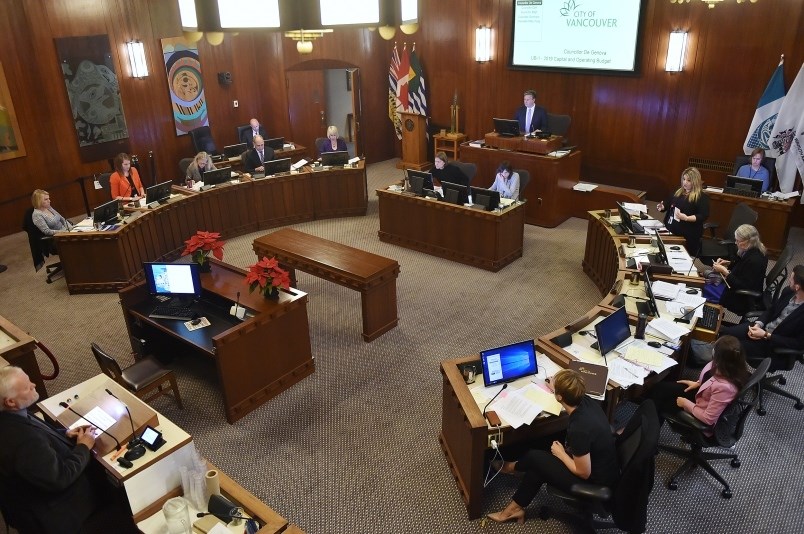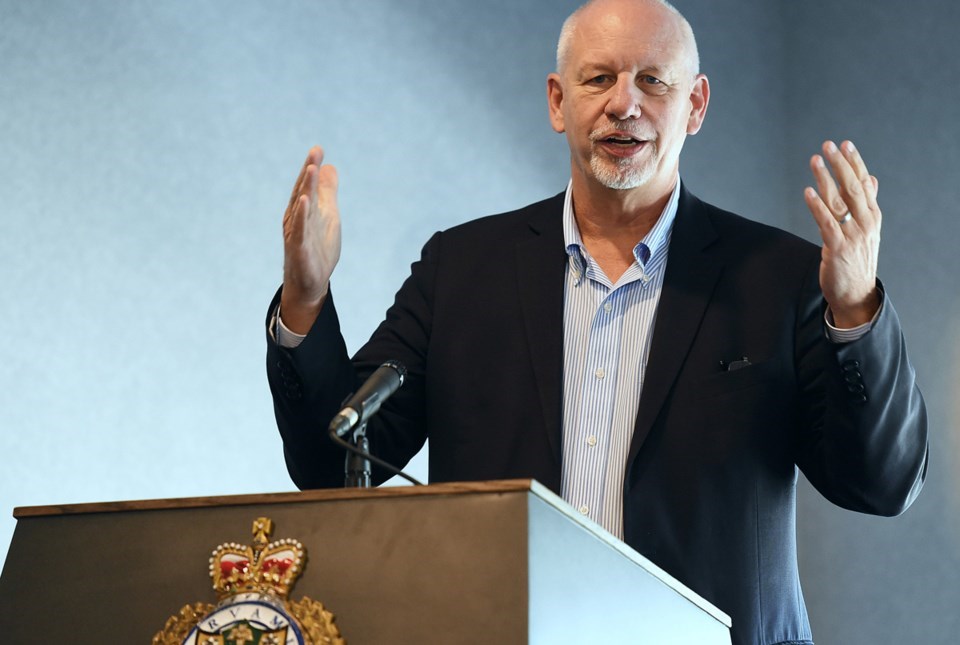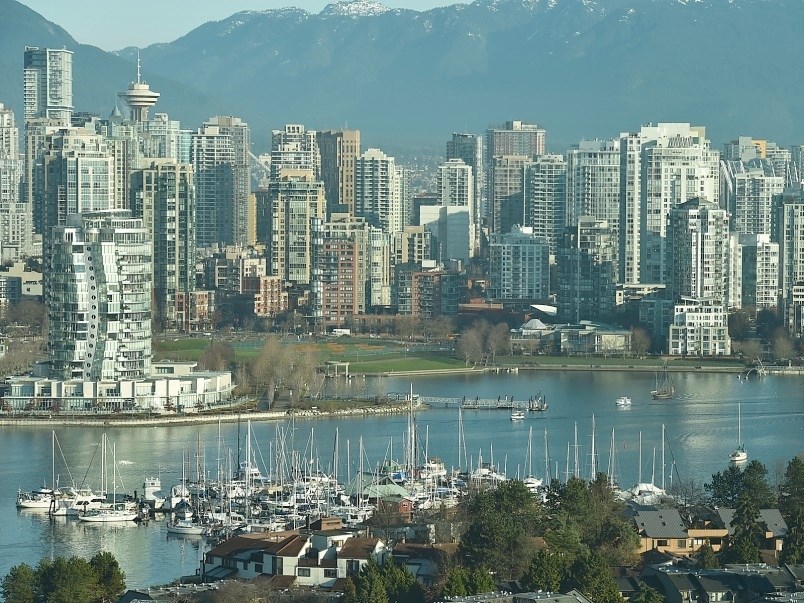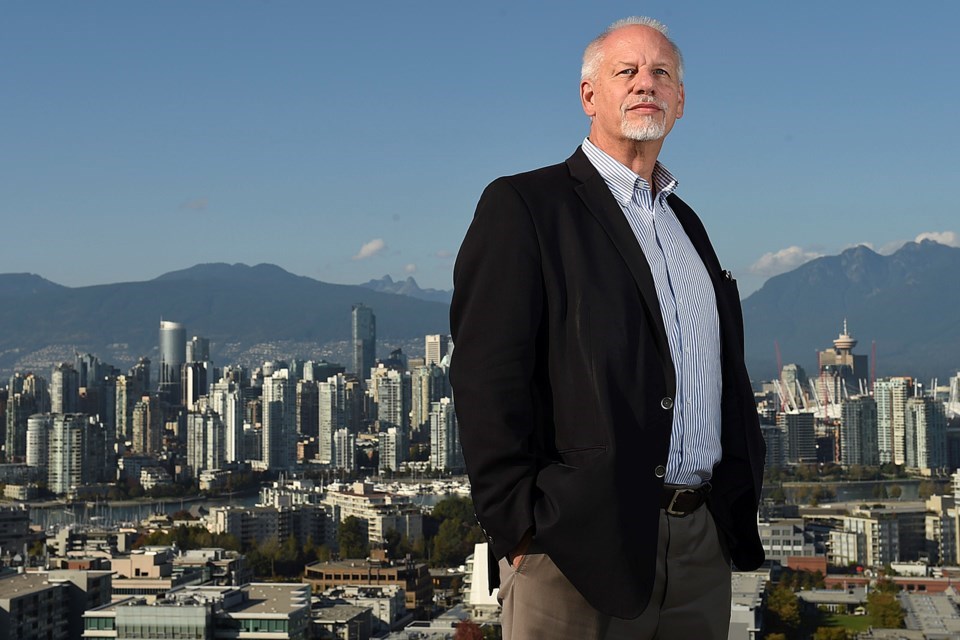His imminent departure was — and still is — big news.
Kelley wouldn’t share details Tuesday about what went down between him and city council, but described his parting as “mutual and congenial.” His exit — for all those wondering on social media — will come with a severance.
Just how much, he wouldn’t say, but added that it was standard for a person in his senior position at city hall to receive a payout; he earned $291,879 in 2019, according to the city’s most recent statement of financial information.
That’s about all Kelley would discuss related to his departure, although he did provide in a lengthy interview what might be interpreted as hints for leaving a job he accepted fewer than five years ago.
Consider his answer to a question about his relationship with city council.
“I don't want to speculate where council is right now,” he said. “Maybe there's a bit of a shift in their focus or their tone or their anxieties, but I can't speculate as to what those are. I just know it has been a good working relationship up until now — with the majority of council anyway.”
Kelley suggested he could stick around city hall until May to help his interim replacement, Theresa O’Donnell, a deputy director of planning, with the transition. He may leave sooner, depending on the needs of the planning department.
After that, the 67-year-old San Francisco-born self-described west coaster said he is not ready for retirement and may return to Oregon, where he still keeps a home.
He talked about this and more from his office at the end of a busy Tuesday, his first as Vancouver’s former general manager of planning, urban design and sustainability.
The following is a condensed and edited version of the rest of the interview.
My former colleague Naoibh O’Connor at the Vancouver Courier spoke to you after your first few weeks on the job back in 2016. She asked about your relationship with politicians in your previous work in the United States. I’m paraphrasing here, but you described the relationships as good and that you were “fortunate not to be constantly second guessed.” Were you second guessed by politicians in Vancouver?
It’s been really pretty good both under the previous Vision Vancouver council and under this new council. But I think this new council is still finding it sea legs, in a way. They're entitled to make their choices. So I can't really speculate on their thought process. I've tried to be quite transparent and forthcoming with them and give them options for consideration. So I don't want to venture further into what might be on their minds at the moment.
 Vancouver city council in the chambers at city hall during pre-pandemic times. File photo Dan Toulgoet
Vancouver city council in the chambers at city hall during pre-pandemic times. File photo Dan ToulgoetWhat should the public make of the city’s chief planner leaving during an affordable housing crisis while the pandemic persists?
I think we have really set a new course on the delivery of the so-called right supply of housing. Between the programs we have underway and the new things we have coming forward to council just in this year — and then ultimately through the Vancouver Plan — we'll be making a substantial shift in the supply of housing toward meeting the needs of a broader segment of the Vancouver population, which has been desperately needed for years. Of course, there's a lag time from building permit to construction and occupancy. That’s a reality, but also a bit uncomfortable for people who are still saying, ‘Well, there's still a housing crisis.’ They’re right, but help is on the way. In other words, a lot of new rental housing has been produced, or at least approved.
Can you give me some numbers?
For example, last year there were almost 4,000 total housing units approved and over 2,000 of those were purpose-built rental. That's a huge shift in the proportions of what the city has been doing, and a result of the 10-year Housing Vancouver strategy we delivered to council in 2017. Over 1,300 are social housing units. So quite affordable. Then below-market rental — mostly from the middle-income rental demonstration or pilot project we designed — about 350 of those units. What’s in the pipeline is a whole lot more of that. There’s relief on the way. It’s just a multi-year process from the time we change policy, approve projects and then get them through construction to occupancy.
What about business growth, in terms of planning?
I also feel good about broadening the economy here. We've approved a lot of new employment space, both in the office sector, but also in the industrial sector, including most recently a major rezoning for a locally grown bio-science company — AbCellera — that's expanding quickly in Mount Pleasant. And there’s a potential site for investment by others. I can't throw out names at the moment, but it's so important that we diversify the Vancouver economy. So that's been another focus of mine, and I think a lot of that will appear in the rebound of the economy — when that occurs, which is probably not too far off for a city like Vancouver, actually.
 Gil Kelley accepted the job as Vancouver's chief planner in 2016. File photo Dan Toulgoet
Gil Kelley accepted the job as Vancouver's chief planner in 2016. File photo Dan ToulgoetWhat has been your biggest challenge since accepting the job in Vancouver in 2016?
When I arrived, I think it's fair to say that the planning department was kind of anemic in the sense that it didn't have the capacity either to handle the substantial influx in development applications, nor was it capable of doing much of the policy plan. So essentially it was building a whole new department, or rebuilding a department and expanding its functions to include sustainability, housing, economic development, bring back a city design studio, do the kind of community development planning like in Chinatown with Hogan’s Alley. That's all new work that we've added to the planning function and integrated that with the more traditional neighbourhood planning. It takes time to expand and rebuild a department and to integrate some functions that were either non-existent or previously spun off to other departments. I feel like we built a really good team here and expanded our capacity and our functionality. That was probably my biggest challenge, and it's also my biggest source of pride — in making a more fulsome planning department that a city like Vancouver really needs.
How would you describe the relationship you had with the development community?
I would say, in general, it's pretty good. I think what I've been able to do is engage them in what I sort of call fixing the airplane while we're flying it — like how are we changing systems to be more efficient, more transparent, more user friendly to them, while still doing our due diligence to protect the public interest. I think most of the concerns from the development industry of late have been around larger proposals that do not conform to existing policy, and therefore can't just get on the fast track like with regular rezonings. I understand their frustrations about the overall process. But it's not that staff is folding their arms, or not hearing them or not listening or not doing their work. It's just that probably some bigger structural changes need to be addressed through the Vancouver Plan. Like, do we have to have public hearings on every single rezoning? Does the city council have to do those all of those hearings? Can we simplify the rezoning standard, simplify the rezoning information and detail of analysis and move some of that to the development permit stage? These are pretty substantial moves.
The development community knows that. I think they're very anxious right now because the market has substantially changed for them. I mean, the ground has shifted under their feet over the last 18 to 24 months. The high-end strata market tower form has completely disappeared for them. That was their bread and butter. Rental is of interest, but it has its own financing challenges and equity requirements attached to it. It's a different kind of developer than the standard strata developer. So they've seen huge market shifts, and they want the city to obviously be part of the solution for their recovery. And we will be, but there's only so much we can do. The market has to rebound. There have been changes in the lending industry, as well. It's a big sea change for them. So I understand the complaining. It's not always something the city can do something about. The larger perspective is also important. But again, we have sympathy, and we're trying to simplify our processes and move things along.
 Gil Kelley on Vancouver's development community: "I think they're very anxious right now because the market has substantially changed for them. I mean, the ground has shifted under their feet over the last 18 to 24 months." File photo Dan Toulgoet
Gil Kelley on Vancouver's development community: "I think they're very anxious right now because the market has substantially changed for them. I mean, the ground has shifted under their feet over the last 18 to 24 months." File photo Dan ToulgoetI received an email from Jon Stovell of Reliance Properties about your departure. Here’s what he said: “As the President of Reliance Properties and former Chair of UDI [Urban Development Institute] I had many dealings with Gil Kelley and the relationship was always mutually professional and respectful. The bigger issue here is that the ongoing volatility of this critical senior planning role as well as the city manager role is not helpful to Vancouver in a time of a housing crisis and numerous major incomplete planning initiatives. This is a challenge for city council that needs to be met.” What do you say to that?
I'm not sure exactly what he means in reference to those two roles. I would just tell Jon — and I've told him this before — we're doing everything we can to simplify processes to move new policy initiatives. And he may be referring to enabling more housing supply. We're doing that. For example, we’re doing that at Marine Landing [in south Vancouver] now. We did it in the West End to promote more rental. We've allowed more density on large sites for rental and affordable. We've got other pieces of territory coming forward that are special planning initiatives that enable more of the kind of development that he's talking about. As I said before, some stuff fits into the regular system of rezoning, and that stuff is moving at its pace, according to our targets. I think he's talking about these larger things that don't fit where he'd like to see more aggressive policy shifts. I’ve articulated that many of those are coming forward. There'll be even bigger moves through the Vancouver Plan. But it takes a deliberate effort, a fair amount of staff time and it will take council approval along the way. So it's not something where you just wave a wand and it happens.
Remind me again why you left the United States to take the chief planner’s job in Vancouver?
I was in a good position in San Francisco, but in talking with the then-mayor [Gregor Robertson] and then-city manager [Penny Ballem], it just was clear to me that Vancouver is the kind of place for me that held the most potential amongst many North American cities — the most potential to make change at an important inflection point in the city’s history. Vancouver held this potential to intentionally shape its future in a big way. And that's been my passion all along around cities is to be intentional about the kind of place they want to be and to harness all the tools in the toolbox to make that happen. I think Vancouver is one of those few cities that can actually realize that and become both a livable and inclusive, vibrant city. And it's not too big to accomplish, it's not too small to accomplish. The idea of setting out plans and policies that are clear, but adaptable over time, can really serve that goal. Vancouver has a history of civic engagement and of urban planning that sets a good basis for that. So I'm still hopeful about Vancouver. It's a tough time right now with COVID and recession, and with a whole array of politics, which I won't go into. But I'm still quite hopeful about Vancouver's ability to become that intentional city, as I call it.
Vancouver, as you know, has had many chief planners who have made their mark on the city. So what will your legacy be as the city’s chief planner over the last four-and-a-half years?
I hope the most lasting aspects will be the ability to veer away from the fate that many economically vibrant cities are going, which is to become a boutique city only for the higher incomes and for cultural facilities and downtown businesses. But the bulk of the population is not diverse, it is moved to the fringes of the metro area. That's the standard thing happening across North America — other than recovering hardship cities like Detroit and Cleveland and St. Louis. But for the bulk of western and east coast cities, that is the pattern. I'm hopeful that Vancouver proper can continue to be a very diverse city. That’s one of the reasons we are putting such an emphasis on adapting housing, supply and production toward what we call the right supply — a mix of ownership, rental with a lot more focus on affordable rental to correct that supply. I guess the other thing I hope is that we broaden the economic base through some of the things I just mentioned to you. I'm hoping that people will see more interesting and diverse neighbourhoods with much more variety of building forms, more walkable streets. Over time, conversion of what has been known as single-family neighbourhoods, which are the great majority of the Vancouver landscape, will become much more diverse, interesting and still very livable. That's a big hope of mine. Finally, I would just say, we have a huge opportunity to define what reconciliation with First Nations really looks like. Nobody knows what that looks like yet, but I think that is a brand new conversation that we really opened up. My real hope is we begin to become a much more integrated, inclusive city.
I know that you haven't had much time to reflect. But when you look back, are there things that you wish you would have done differently? People do think about these things when they leave a job. Perhaps you're not that type of guy.
I try to be a reflective practitioner all the time in my work. I guess what I prefer is if you and I can talk again in a few weeks when I’ve had time to take a breath and think through that. Because I want to be thoughtful in my response to that question.
What's happens next for you?
Right now, I'm going to take the time just to think about what's next, and to catch my breath. It's been 24/7 for four-and-a-half years. It’s been a very, very intensive role, and I’m very happy with what I've been able to accomplish. But I also want to just read a little bit and actually think about what's next. With COVID, it's a hard time to do much traveling or to do job searching. I look forward to getting more exercise, doing a little bit of writing and just seeing what comes to me. I’m now 67 — and young. I’ve still got a lot of gas in the tank, a lot of miles to go. I love the work that I do. I’m very passionate about it.
@Howellings



